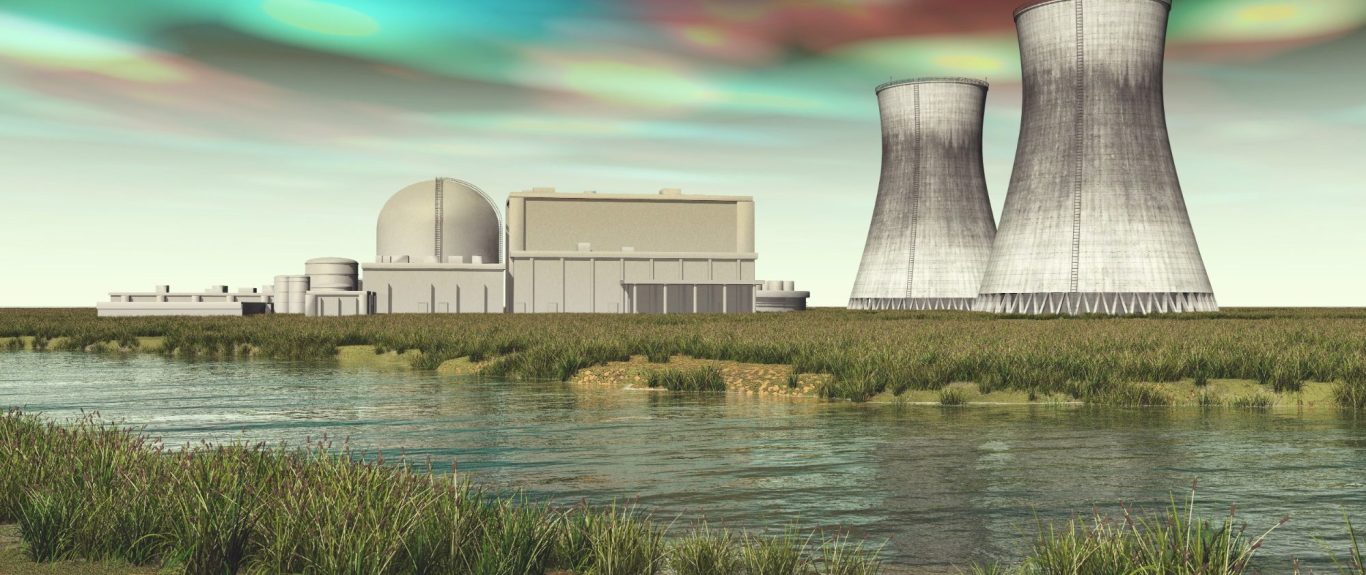Indonesia Accelerates Nuclear Power Development Amidst Energy Transition
A fundamental transformation is underway in Indonesia's energy sector, with nuclear power emerging as a central pillar in its strategy to address surging electricity demand, reduce its heavy dependence on fossil fuels, and achieve ambitious net-zero emissions targets. This bold shift signals a profound re-evaluation of the nation's energy mix, as it seeks a reliable, low-carbon baseload power source to underpin its significant industrial expansion and growing population.
This intensified focus on nuclear energy is reflected in rapidly evolving targets and timelines. What began as plans for a few gigawatts of nuclear capacity has swiftly transformed into an ambitious aim of 10 GW by 2040, a crucial component of the 103 GW in additional power capacity projected for that year. The initial nuclear power plant is slated for operation by 2032, starting with 250 MW and expanding to 500 MW across Sumatra and Kalimantan by 2034. This accelerated deployment relies heavily on Small Modular Reactor (SMR) technology, lauded for its efficiency and adaptable design. Promising sites, including West Kalimantan and Bangka Belitung Islands, are being prioritized due to their lower seismic activity and strategic proximity to growing energy needs.
Indonesia stands to gain significantly from this nuclear endeavor. Leveraging its substantial 24,112 tons of uranium and thorium reserves in West Kalimantan could dramatically boost energy independence and insulate the nation from global fossil fuel price volatility. This development is expected to stimulate new, high-skilled industries, generate numerous employment opportunities, and attract considerable foreign direct investment as international players from Russia, China, the US, Canada, Denmark, and the UK express strong interest in partnerships. Environmentally, nuclear power offers a vital avenue for decarbonization, substantially reducing the greenhouse gas emissions currently associated with Indonesia's predominant reliance on coal. A stable and dependable nuclear electricity supply can elevate living standards, bolster industrial growth, and potentially bring power to underserved remote communities, particularly with the deployment of floating SMRs. National entities like Pertamina NRE are already establishing task forces and exploring collaborations with state utility PLN and private sector partners, underscoring a unified national drive.
However, moving so swiftly into nuclear power carries inherent challenges. A consideration is ensuring absolute safety and a robust regulatory framework, especially given Indonesia's location on the geologically active Ring of Fire. While site assessments meticulously consider seismic stability and stringent regulations aligned with IAEA standards are being developed, the inherent risks demand unwavering adherence to protocols. Furthermore, the limited commercial track record of SMRs on a large scale introduces an element of technological uncertainty. Concerns also arise regarding institutional governance, with some observers noting that nuclear technology necessitates inflexible regulation, full procedural discipline, and long-horizon accountability, which might clash with existing procurement flexibility and regulatory leniency. The considerable upfront capital costs of nuclear projects, even with potential co-investment from Indonesia's sovereign wealth fund, represent a significant financial hurdle. Finally, comprehensive public engagement and educational initiatives are crucial to allay public apprehension and address any misinformation surrounding nuclear energy, which is essential for the successful long-term implementation of these transformative plans.
Sources:
- "Feasibility study underway for Indonesia-Russia nuclear power project." Antara News, June 20, 2025. https://en.antaranews.com/news/360781/feasibility-study-underway-for-indonesia-russia-nuclear-power-project
- "Government prepares regulations on uranium, thorium processing." The Jakarta Post, June 23, 2025. https://www.thejakartapost.com/business/2025/06/23/government-prepares-regulations-on-uranium-thorium-processing.html
- "Indonesia Plans First Nuclear Power Plant by 2034, Eyes Partnerships with Russia and Canada." Jakarta Globe, June 24, 2025. https://jakartaglobe.id/business/indonesia-plans-first-nuclear-power-plant-by-2034-eyes-partnerships-with-russia-and-canada
- "Indonesia Plans Nuclear Plants with Potential 24,000 Tons of Uranium in Reserve." Jakarta Globe, June 23, 2025. https://jakartaglobe.id/business/indonesia-plans-nuclear-plants-with-potential-24000-tons-of-uranium-in-reserve
- "Indonesia targets 10GW nuclear power by 2040 in renewables push." Power Technology, May 2, 2025. https://www.power-technology.com/news/indonesia-nuclear-power-2040/?cf-view
- "Indonesia Weighs China, Russia Nuclear Tech as 24,000-Ton Uranium Reserve Identified." Jakarta Globe, June 20, 2025. https://jakartaglobe.id/business/indonesia-weighs-china-russia-nuclear-tech-as-24000ton-uranium-reserve-identified
- "Indonesia's Pertamina NRE preparing country's first nuclear energy project." Nikkei Asia, June 27, 2025. https://asia.nikkei.com/Business/Energy/Indonesia-s-Pertamina-NRE-preparing-country-s-first-nuclear-energy-project
- "Pertamina NRE shows interest in developing Indonesia’s first PLTN." Indonesia Business Post, June 30, 2025. https://indonesiabusinesspost.com/4628/energy-and-resources/pertamina-nre-shows-interest-in-developing-indonesia-s-first-pltn
- "Putin Says Russia Keen to Assist Indonesia in 'Peaceful' Nuclear Development." Tempo Online, June 20, 2025. https://en.tempo.co/read/2019556/putin-says-russia-keen-to-assist-indonesia-in-peaceful-nuclear-development
- "Six countries express interests in building nuclear power plants in Indonesia." Indonesia Business Post, May 2, 2025. https://indonesiabusinesspost.com/4217/energy-and-resources/six-countries-express-interests-in-building-nuclear-power-plants-in-indonesia
- "West Kalimantan tipped as strategic site for nuclear power development." Indonesia Business Post, June 18, 2025. https://indonesiabusinesspost.com/4546/national-resilience/west-kalimantan-tipped-as-strategic-site-for-nuclear-power-development

ENERGY
July 17, 2025
